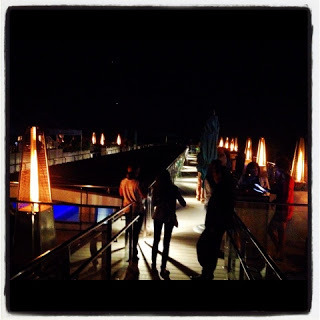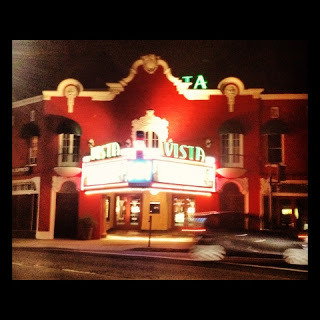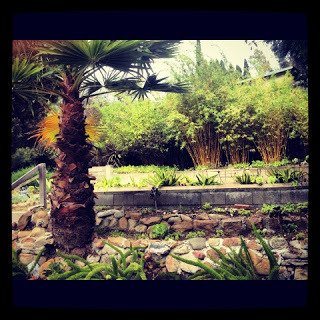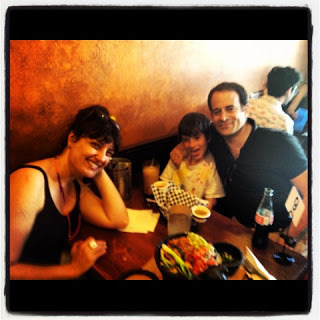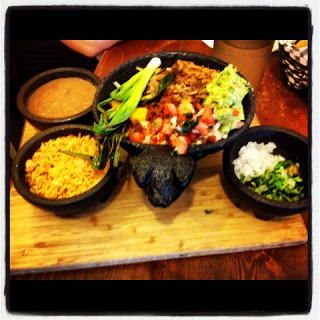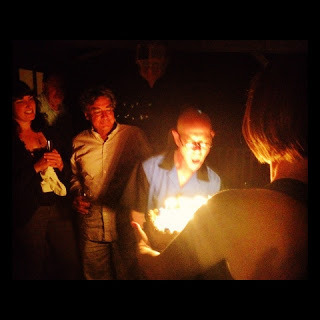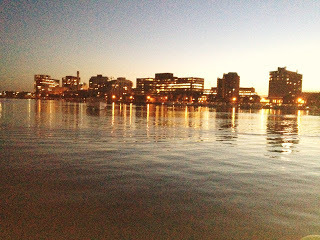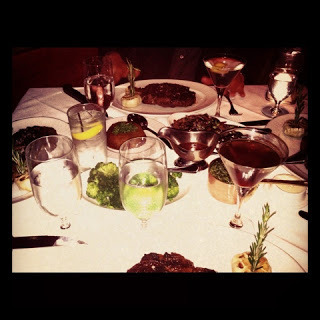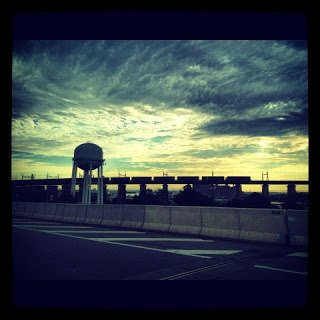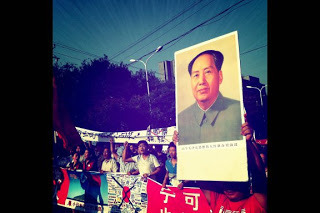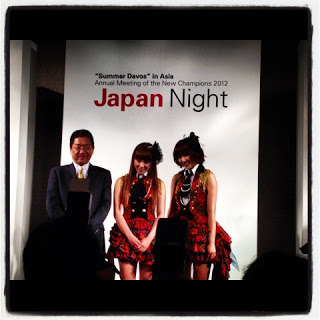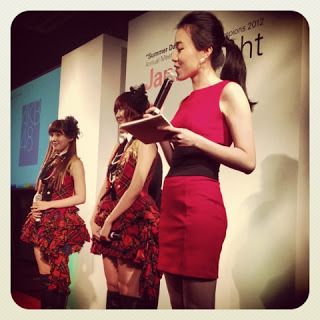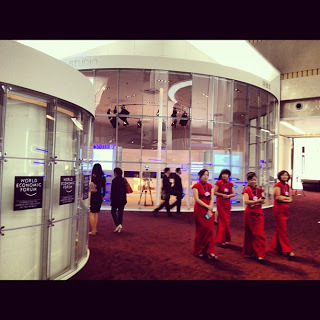Roland Kelts's Blog, page 52
October 22, 2012
Travel & Friendship
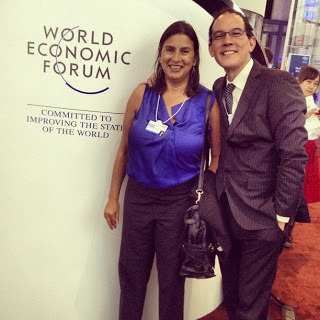
[latest column for Paper Sky ]
IN a JFK airport lounge after midnight last month, one voice
stood out. It was throaty, raspy at times, and female. Julie Kavner in a Woody Allen movie, Marge
Simpson with less phlegm and pitched slightly lower: a vintage Brooklyn yawp
over an otherwise placid airport sanctuary.
The lounge was filled with Asian and American businessmen quietly
clicking laptops or fingering Blackberry keys and iPad screens, sipping wine or
whiskey and tossing their heads back to down salty snacks.
“I don’t mind the presentations and stuff,” the voice
said. “That’s fine. What I hate are the lunches and dinners, you
know? Where you have to talk to these
people and you don’t know what to say to them.”
I was there on an unusual mission. Several months earlier,
I’d been invited by the World Economic Forum (WEF) to participate in their
annual event in Asia, an adjunct to their more famous gathering in Davos,
Switzerland, and one focused more on media and culture than pure economics. I
accepted, though it was so far away on my calendar that I couldn’t have
anticipated the various distractions to come, including my father’s open heart
surgery this past spring.
Acceptance always means obligation, and soon the WEF people
were asking me for drafts of what I’d say and show. They had every right to do so. They were
flying me to China business class from New York and had taken care of all
hotel, dining and transport specs.
So in the JFK lounge, the woman who yawped, dressed in
black, caught my attention. She was clearly on the same itinerary, flying to
the same event.
On the connecting flight to Tianjin from Seoul, I was seated
across the aisle, so I introduced myself.
Were we attending the same event together, and if so, any tips?
Her name is Barbara Pollack, an artist, writer and critic I
have read for years in the New York Times and The Village Voice. She told me what to expect and what to avoid,
and more importantly, accepted my invitation to companionship.
Sometimes travel is best engaged alone. As Thomas Mann notes
in Death in Venice, solitude gives birth to originality. Impressions sink
silently in.
But sometimes travel is enhanced by a companion—especially
one from your hometown.
We landed in Tianjin.
Instantly, I felt I’d know Barbara for years, though without
rationale. The chaos of modern China met
us at the gate: Like Americans in New York and Los Angeles, Chinese seem to
create chaos out of order, mixing signals and disrupting taxi lines with glee,
as if it were a sport.
But with Barbara, the chaos was manageable, even
entertaining. “Let’s register as soon as
we get to the hotel,” she told me amid our shouting hosts.
“After that, things get crazy.”
We rode into downtown Tianjin in a WEF-sponsored van. The city looked ugly and vast, like Los
Angeles on a bad day, faceless projects with little concern for aesthetics.
Yet Barbara was relentless in her knowledge of Chinese
artists. They were extraordinary, she
said, but stifled by a system that stifled itself.
I met some equally extraordinary individuals at the WEF
event—Chinese, Korean, Japanese, American and European, but it was Barbara who
made it all worthwhile.
One night we dined in an elegant restaurant outlet called
South Beauty in downtown Tianjin. My
bank card had been consumed earlier by the ATM at our hotel, and she kept
calling the concierge to get it back.
“Don’t worry,” she kept telling me. “It will happen.”
Around us, the anti-Japanese/anti-US protests over disputed
islands were brewing. The hotel staff said that they were sorry, but they’d
find my card the following day.
They did. Barbara and I ate, sipped beers before bed, and said good
night. Sometimes, having a friend on the
road, loud and raspy, beats the impressions of solitude, especially when you're lonely.
Published on October 22, 2012 06:51
October 17, 2012
On Haruki Murakami for The New Yorker
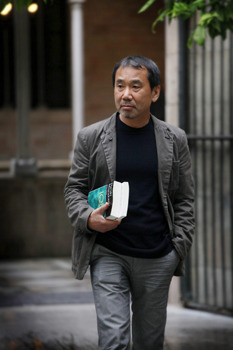
The annual autumn buzz here in Tokyo for the Nobel Prize in Literature was more intense last week than in any years past. The Japanese novelist Haruki Murakami, whose global audience and literary stardom confound conventional publishing wisdom (he’s not American, doesn’t write in English, and not a single vampire or wizard appears in his oeuvre), has been in the running several times, but this year he topped everyone’s list of favorites. Leading up to the word from Stockholm, early evening local time, a major domestic TV network aired a segment in which Murakami readers worldwide expressed their love for him and his books in a babel of languages. One Chinese reader declared that the latest China/Japan spat over disputed island territories had zero impact on China’s love for Murakami, despite the author’s recent newspaper article calling for both sides to lay off the liquor of nationalism. (Some Japanese newspapers were reportedly banned in China last month, so the reader may not have seen it.)
Speaking of liquor: At least one bar in Tokyo hosted a special Murakami Nobel gathering for so-called “Harukists,” the label at home and abroad for Murakami’s most ardent fans. They were shown clutching copies of his books and framed photographs of the author, and half-finished glasses of wine and beer. Only the World Cup and the Olympics have occasioned similar events in the past. For the first time, oddsmakers, scholars, critics, readers, and publishing pros in and beyond Japan seemed united in nodding their belief that this was “his year.” But it wasn’t. China’s Mo Yan won, and the disappointed Harukists managed only sighs, followed by half-hearted applause for their neighbor’s accolade. “I’m very happy the winner was someone from Asia,” one female Harukist told the Mainichi newspaper on her way home, polite to the end.
[Read more]
http://www.newyorker.com/online/blogs/books/2012/10/the-harukists-disappointed.html#ixzz29XvcdEmz
Published on October 17, 2012 02:19
October 13, 2012
Scenes from Los Angeles
Published on October 13, 2012 23:44
October 10, 2012
On Pete Townshend for The New Yorker
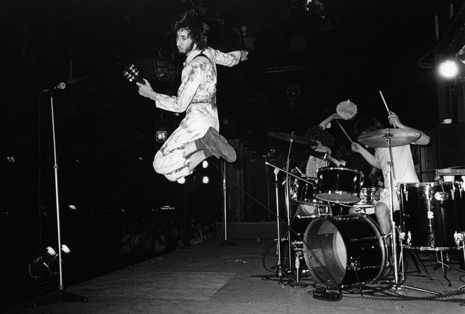
I first met Pete Townshend fifteen years ago in a modest London hotel suite. I was there with my friend Larry David Smith to interview Townshend for Smith’s book, “The Minstrel’s Dilemma.” We were already seated inside when I looked out the first-floor window and saw Townshend pulling into the parking lot.
He arrived alone, sans entourage or fanfare, driving himself in a gray Mercedes station wagon. Minutes later, the knob on the suite door rattled and shook. I stood, thinking that it might be a member of the hotel staff and wondering if I should turn the knob from our side. There was a pause, then more rattling, then the door swung open and Townshend burst through, eyes wide with exertion. He had apparently been trying to pull when he should have pushed.
[Read more]
http://www.newyorker.com/online/blogs/culture/2012/10/pete-townshends-war.html#ixzz28xLTefGL
Published on October 10, 2012 20:08
September 24, 2012
Charles River, Boston
Published on September 24, 2012 22:44
September 21, 2012
Ribeye steaks @ NYC
Published on September 21, 2012 19:46
September 20, 2012
Queens Freight
Published on September 20, 2012 18:21
September 19, 2012
On "HuffPost Live" tonight @ 8:20 EST
Published on September 19, 2012 15:27
AKB48 do Davos/WEF China
Published on September 19, 2012 14:06
September 18, 2012
Talking New Media in China
Published on September 18, 2012 16:33

